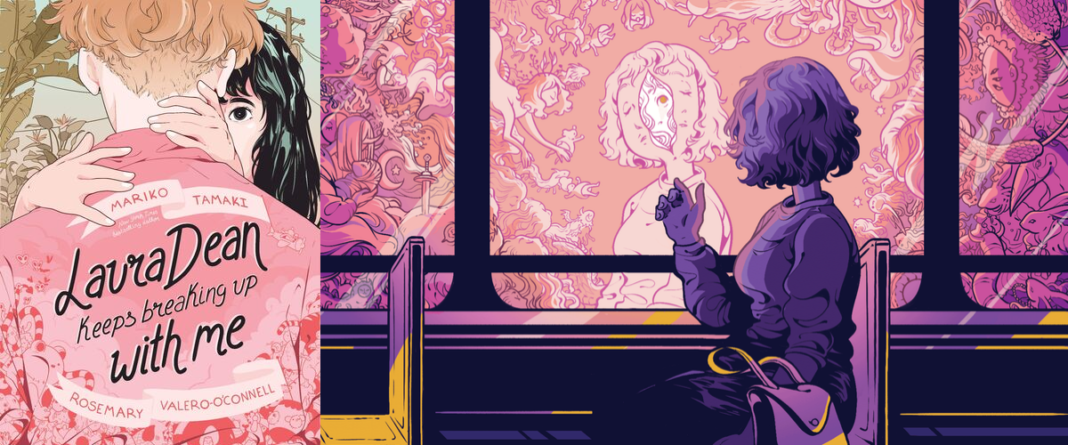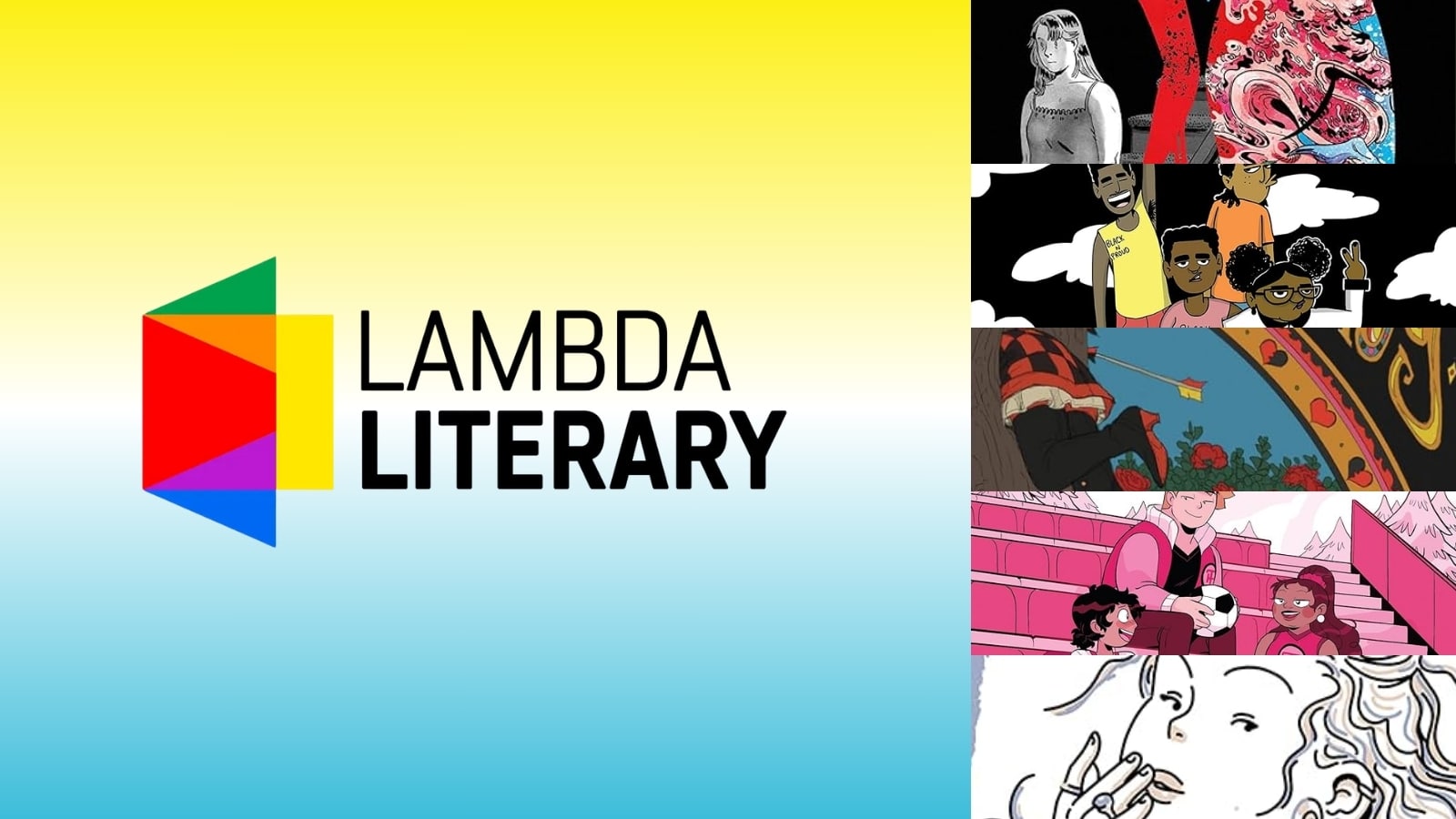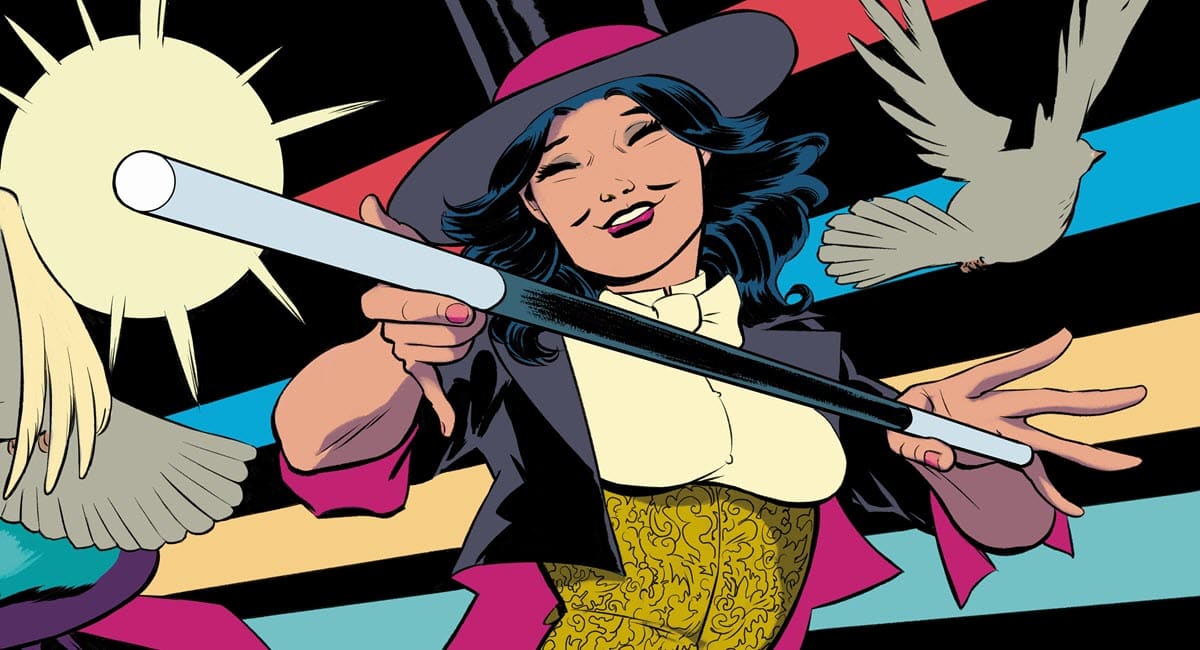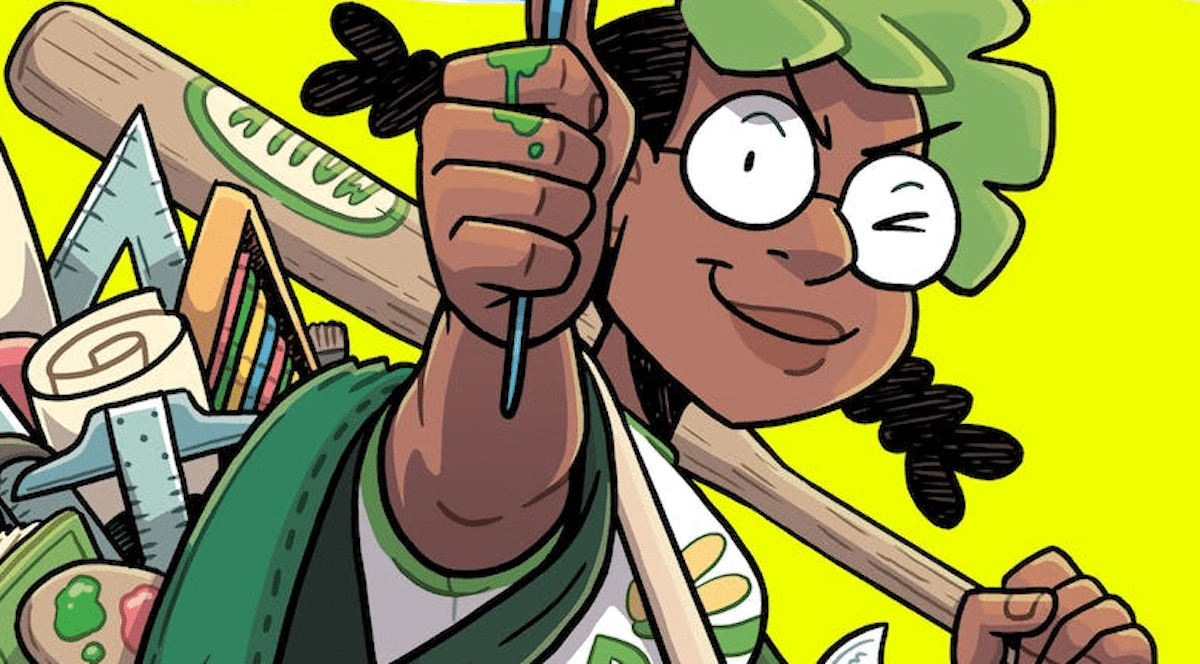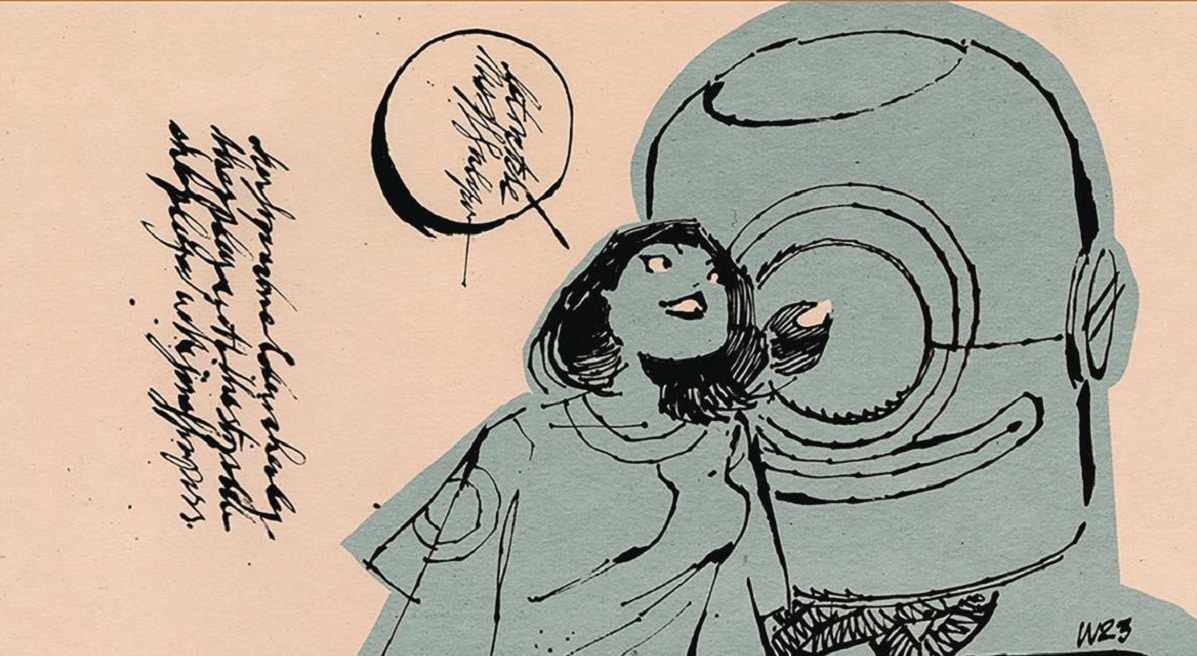By Sara L. Jewell
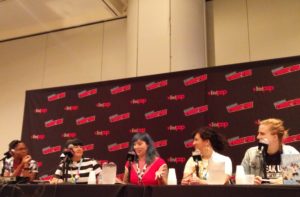
Tamaki (she/her) asked panelists to start out by introducing themselves with their pronouns, as well as their “nerd origin” – a formative piece of media from their youth, kicking things off with her own, to appreciative laughter: The Care Bears. Venable (she/her) responded with Monty Python, while Valero-O’Connell (she/her or they/them) thought for a moment before selecting late 80’s/early-90’s shoujo manga and anime adaption Please Save My Earth. Johnson (identifies as genderqueer, uses she/her) received an enthusiastic response from the audience by naming seminal and ubiquitous shoujo series Sailor Moon.
Tamaki continued the conversation about formative media by following up with a question on queer representation. While all of the panelist’s projects represent queerness, she began, seeing yourself in a book is not necessarily seeing the complete you. What’s the first queer character in a book where you saw a clear version of yourself? For her, it was Harriet the Spy, “I related to this practice of wanting to write about other people,” she explained, “the idea of being an observer was something I was super into.” Johnson shouted out Tamora Pierce’s classic feminist YA series Song of the Lioness, to cheers.
The panel then shifted its attention to what Tamaki described as “the black box” of the path to publishing your first work in comics. Valero-O’Connell described being pursued for Laura Dean by her current editor after meeting at her booth at MoCCA arts festival in NYC and veritably collapsing after being asked to collaborate with Tamaki, “whose work basically got me into comics.” Venable faced an enormous amount of rejection – 31 books – before connecting with her editor, a fan of her online photo comic. She told a humorous anecdote about children’s assumption of the gender of her guinea pig character, and Johnson remarked that “it’s interesting how early kids are taught to be obsessed with gender.” At this point, Ukazu arrived a bit late to thunderous applause.
Johnson, pursuing a BFA in Sculpture, was told she could do a comic for her undergrad thesis “as long as it’s three dimensional.” So, she quipped, she turned in “a nice thick book, which is three dimensional!” She then opened herself up to proffered critique on her first pitch rejection from First Second. Much later, this learning experience resulted in a successful pitch to the same editor that was accepted “within 24 hours” – but, she emphasized, it took years to get to that point.
Ukazu spoke earnestly about wanting “to tell a story about acceptance, and people thriving in the environments that wouldn’t initially accept them,” with Check, Please! She described making an offhand comment to a friend about Yale being “the gay Ivy” and having a guy nearby scoff that “no one on the hockey team was gay,” a comment that is characteristic of some of the misguided attitudes about what types of people exist in the world of sports that Check, Please! implicitly refutes.
Tamaki’s next question asked the panelists to consider if there is something outside of the romance or “moments of identity” of the characters in their books that makes the books themselves queer. Johnson, whose book is middle-grade, situated its queerness within identity that isn’t necessarily defined by romance or character relationship. Kids are “finding their identity at an earlier stage of development,” she said, and the characters are thinking about a variety of possibilities in regards to their gender expression. The conversation came to center on the idea of found family, a matter of necessity oftentimes for queer people and thus a common thread through many queer books. “That sort of building of community felt very queer to me,” Tamaki said of found family, “it’s a redefining…that many queer people go through.”
Valero-O’Connell also brought up “the specific ways that queer people care for each other platonically…Freddy and Vi’s relationship [in Laura Dean] to me feels explicitly queer,” as well as corroborating that connection is frequently a matter of necessity. Ukazu remarked on the importance of queer community in Check, Please! as well, adding that a common motif in her work is “a place that people can go to be themselves.” She acknowledged as intentional Tamaki’s observation that Check, Please! pushes back against media that frames antagonism and bullying as the norm.
Tamaki opened that question up widely to the panelists as to whether they feel their work pushes back against any middle-grade or YA tropes – with Laura Dean, Tamaki said,” I wanted to have a story that was about more than falling in love.” Johnson observed that “a lot of middle schoolers ‘try on’ being mean…try bullying, and you’re also learning empathy at the same time.” In Breakaways, the characters have to come to terms with the fact that bullying isn’t only the province of a particular stereotype, but an inclination to perhaps recognize and reject in yourself. Valero-O’Connell added that “meanness between girls is very rarely about either of them,” and that as a teenager herself, she “pushed back so hard against femininity because I knew that it was ‘not good’ to be a woman,” due in no small part to the influence of media rife with feminine stereotypes. On the other hand, however, she’s found herself “very into overdone archetypes” because “marginalized creators haven’t had their time with [them] – we’ve seen it a million times, but with the same types of people.” On a different note, Venable remarked on her trope-defying intention with her work that “I wanted religion to not be a bad guy.”
The panel’s penultimate question addressed to what extent each of the panelists felt that they were influenced by their online presence and the queer community around that, especially if there was displeasure over the handling of representation in their work. Johnson said that “my queer community was the punk community” and that she felt lucky to have had an in-person community that pushed back against disrespect for queer and trans elders and the idea that new generations are “reinventing” being queer. Ukazu, on the other hand, has a huge readership online, primarily on Tumblr, a space that she values as “a place where many people can explore and express identity” as well as a home for sports subculture. She hopes that comics like Check, Please! can highlight the existence of queer identities within sports.
Valero-O’Connell admitted that she first started Laura Dean with the “lofty and unachievable goal” of making something that would be universally liked and an exclusively positive force in the world. She voiced her hesitance to commandeer stories outside of her own lived experience in terms of representation, and how important feedback from people of that experience can be if you are creating those characters. Tamaki agreed, “I haven’t grown up as a black gay man in Oakland,” but acknowledged that neither can you just walk up to someone of that experience and use their story. The panelists circled back around to this idea later in the Q&A. Venable also voiced a hesitance to co-opt experience; “I wouldn’t be comfortable writing a main character who is trans,” for example, she said.
“I tend to stick to my own experience,” Tamaki reiterated, “I think you have a responsibility if it’s not your experience to ask yourself why you want to tell that story in particular and make sure you talk to an extensive number of people,” of that experience. Ukazu suggested speaking to paid consultants for a character that you need that help writing, which she is doing for an upcoming project. Venable also advised reaching out on a platform like twitter for sensitivity readers, but cautioned against just asking friends.
The panel concluded with an overview of some of the works-in-progress that could be discussed, as well as the creator’s “dream projects” that they’d love to someday work on. Ukazu is working on a softball story described as being about “art students who must win one game of softball in order to get an athletic scholarship,” and also announced for the first time at the panel a brand new project about “a Nigerian girl who switches bodies with her crush” which “investigates race, gender, and socioeconomics.”
Johnson’s next project is in the pitching stage – as far as a dream project, in her capacity as a teacher she’d love to go to Harvard to do research on the effects and benefits of cartooning. Beyond that, she just wants to “keep making books.”
Venable’s next story concerns someone whose neighbor has an astonishing number of cats (217!) and it also an evil villain – her dream project is a teen drama over the course of 24 hours focused on caring for baby bats. Valero-O’Connell just finished final edits on her comic triptych with ShortBox entitled Don’t Go Without Me. Her next mystery project after that hasn’t been officially announced yet.


